8 Electrical Safety Tips To Protect your Home
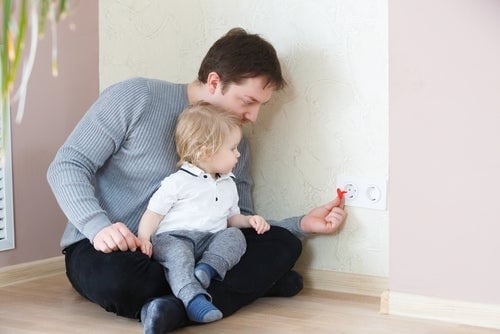
It is hard to imagine a life without electricity, but this helpful power should not be underestimated. Follow these 8 electrical safety tips to keep you safe.


It is hard to imagine a life without electricity, but this helpful power should not be underestimated. Follow these 8 electrical safety tips to keep you safe.
Modern homes are full of appliances, systems, and electronics that use electricity—these items power daily life. However, with these hardworking household items comes potential electrical hazards that many people are unaware of. According to Electrical Safety Foundation International, there are an estimated 51,000 electrical fires every year.
Learning electrical safety is crucial to avoiding preventable accidents and keeping you and your family away from harm. Here are eight electrical safety tips and precautions.
Good childproofing of any home should take electrical outlets into consideration. Children are prone to sticking their fingers or other dangerous objects in outlets. Keep toddlers out of danger by inserting plastic electricity safety plugs in all of your outlets and ensuring small electrical appliances are out of their reach.
It’s also a good idea to teach little ones about safe electric practices early. Many parents use the word “hot” to encourage toddlers not to touch hazardous items. You can also put sticky notes with electricity drawings—like lightning bolts or sparking lightbulbs—on certain objects to help them remember to be careful.
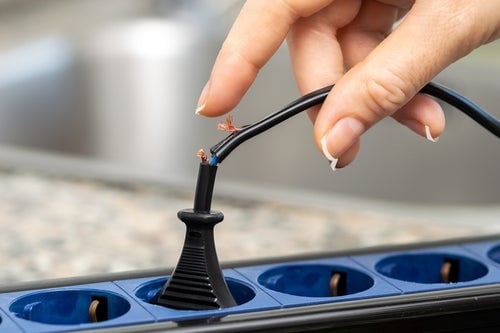
Even in the wireless age, we still need extension cords from time to time. Here are some electrical safety rules for extension cords:
It’s important to practice electrical safety at home during inclement weather. According to the CDC, electrical charge during a storm could come through telephone wires, water pipes, or anything else that is plugged in. If you hear thunder or see lightning in the area, you may want to rethink that relaxing bath and wait until the storm has passed.
You can still use battery-operated items like your cell phone or laptop. Just make sure they’re not plugged in and charging.
Thinking about coverage?
Security for your home. Protection for your budget.
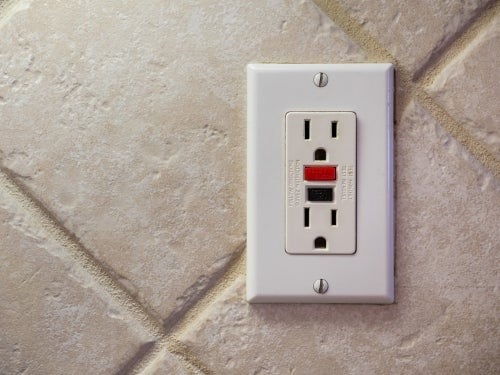
In new homes, special electrical outlets called Ground Fault Circuit Interrupters (GFCIs) are part of the required electrical safety guidelines in areas where water is used:
GFCIs can help prevent electric shock by shutting off power the instant they detect a current flowing through water or even a person.
If you live in an older home, it may not have GFCIs. Investing in them can save you from an accident and potential electrical problems in the future. Take proper precautionary measures and contact an experienced, licensed electrician to install these outlets.
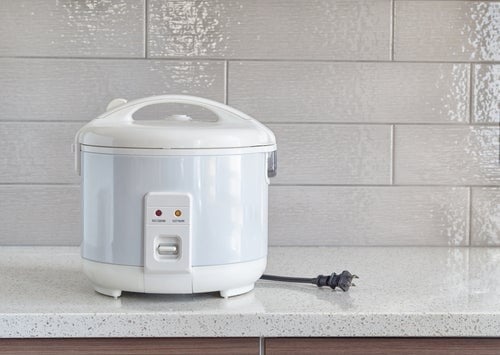
Appliances are easy to plug in and forget about. They can, however, pose a threat if not tended to properly. Here are electrical safety tips for appliances:
It’s easy to use wet hands when switching on the garbage disposal while the sink is running. To avoid accidentally shocking yourself, take the time to dry off your hands before turning on the appliance.
Never use electrical appliances, like a hairdryer, near a filled tub or sink. Small appliances can easily fall in, increasing the risk of serious injury.
Don’t forget this well-known electricity safety fact: Water should never be poured on an electrical fire. This will only encourage the flames. Keep a fire extinguisher on hand in case of an emergency.
If you have to use electricity outside where it might be wet (like when you’re replacing outdoor light bulbs, hanging holiday lights, or trimming trees), always wear shoes that have rubber soles. Rubber is an insulating material, meaning that if there is an electrical shock, your soles will prevent the current from moving through.
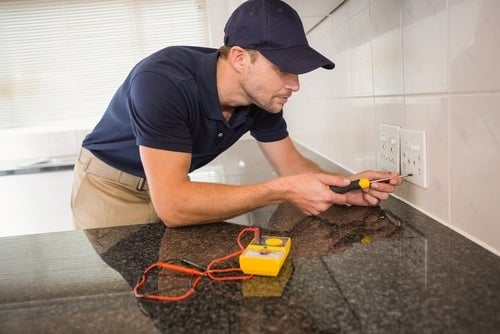
Repairing or replacing the wiring in your home requires experience and skill. Even basic electrical wiring jobs can be risky. Use a professional contractor to help with electrical issues and minimize the risk of electrical mishaps in your home.
American Home Shield® can help when components of your electrical system experience problems. Each one of our home warranty plans includes an electrical systems warranty. If your covered item is malfunctioning due to wear and tear, all you have to do is submit a service request and pay your Trade Service Call Fee. Then, we’ll send a skilled technician to diagnose the issue. Check out our pricing and plans to learn more about what else is covered by your home warranty. See the plan contract for coverage details, including service fees, limitations and exclusions. Charges for non-covered items may apply.
Remember to practice electrical safety daily in your home. For more advice, read our home safety tips.
See how a protection plan can help with covered electrical line issues.
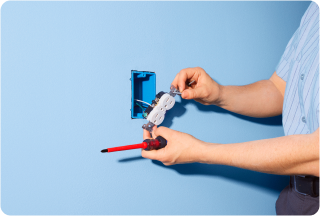
AHS assumes no responsibility, and specifically disclaims all liability, for your use of any and all information contained herein.
Have a plan for your home when things don't go according to plan
Shop Home Warranties